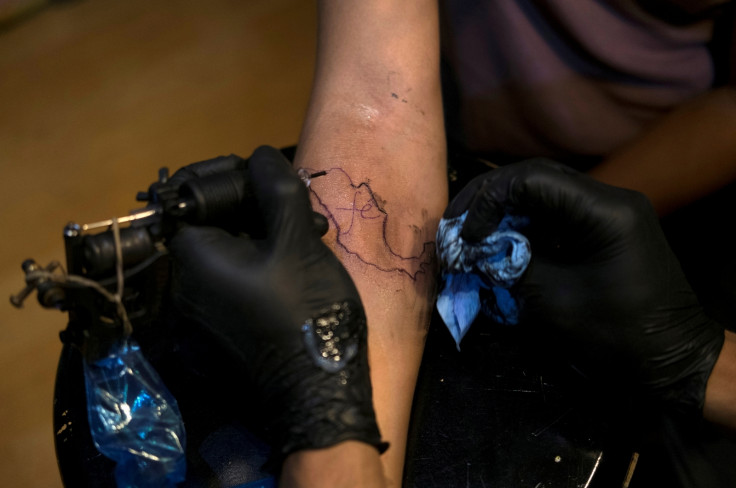These colour-changing smart tattoos could be used to monitor dehydration or sugar levels
The tattoos could prove much better than existing health-monitoring wearables.

A group of Harvard and MIT researchers has developed biosensitive tattoos which change colour and could help with continuous monitoring of health conditions such as dehydration or increase in blood sugar levels, according to a new study.
The smart tattoos, developed under a project titled Dermal Abyss, look pretty much normal but use Harvard's special, biosensitive ink, which contains colourmetric and fluorescent biosensors that detect concentrated amounts of sodium, glucose, and hydrogen ions in the interstitial fluid (a solution surrounding the tissue cells) of the skin.
As a result, whenever sodium or glucose levels increase the ink changes its colour indicating signs of dehydration or an increase in blood sugar levels. The team has already developed two variants of a green coloured ink – one that changes to brown with the increase in glucose levels and other which grows more intense under blue light when sodium concentration rises. They tested the proof-of-concept on segments of pig skin.
With further developments and removal of some bugs, researchers could bring these tattoos into the market, offering a better health monitoring solution over conventional wearables, which do not integrate this well with the body and suffer from wireless connectivity and battery-related glitches.
The tattoos, according to the researchers, could be used by athletes as well as astronauts for whom continuous health monitoring is extremely important.
Speaking to Inverse, study co-author Nan Jiang said: "This work could be expanded to monitor athletes and their health levels, people who have chronic conditions that need to be monitored like diabetes, and it could even be used on astronauts to monitor their health in space."
Notably, a tattoo displaying your health information could also raise some privacy concerns – an issue the team looks to address by adding invisibility to the smart ink. Meaning, it could be seen only under specific lighting conditions beamed from your phone.
Still, this is just a proof-of-concept and needs more work to be developed into a full-fledged health-monitoring system for humans.
© Copyright IBTimes 2024. All rights reserved.





